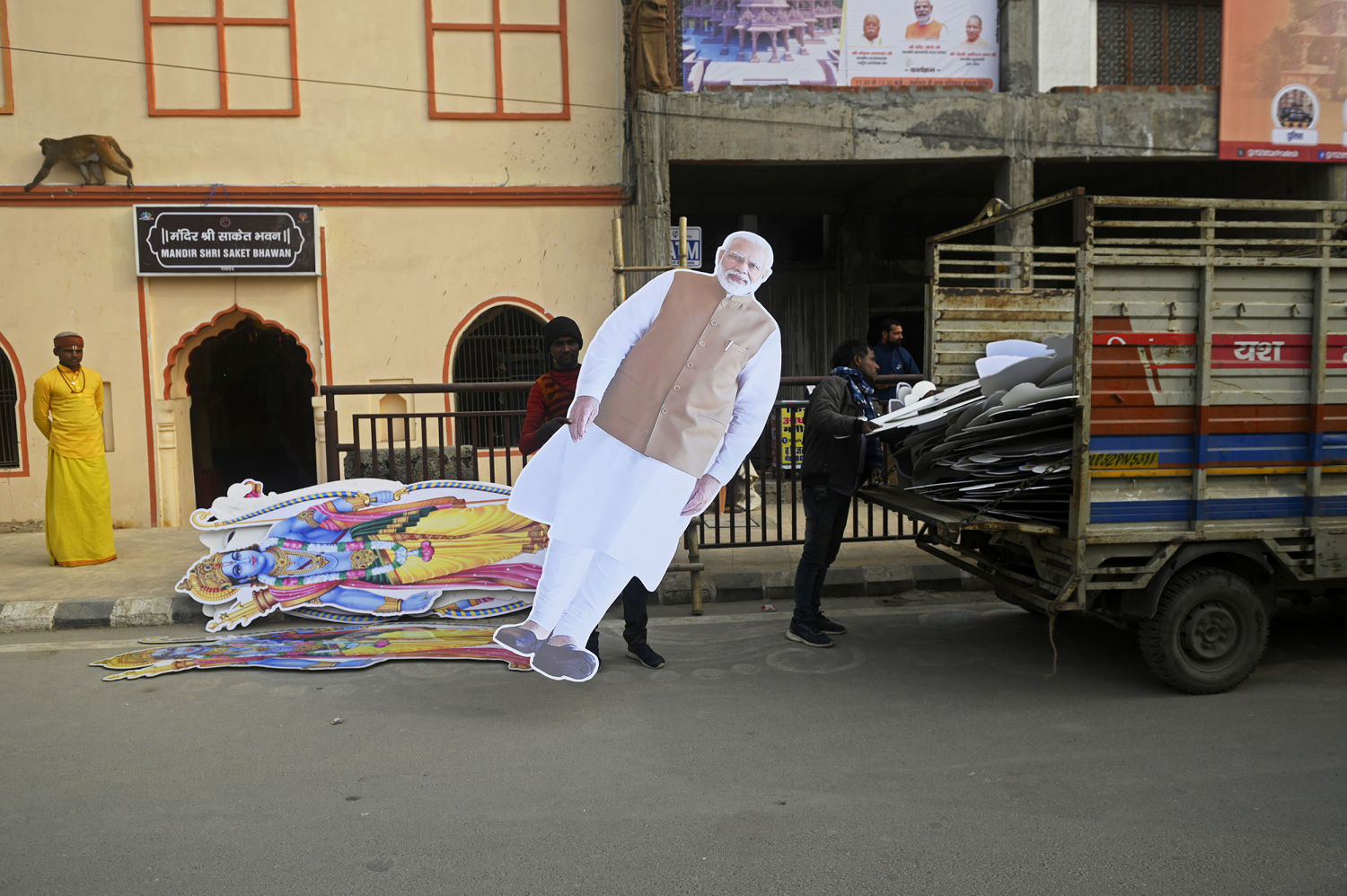Modi to open grand Hindu temple with eye on India’s upcoming elections

India is set to come to a halt Monday as Prime Minister Narendra Modi presides over the opening of a grand Hindu temple on a contested holy site that has become a symbol of religious tensions in the world’s largest democracy.
The $217 million Ram Mandir honors Lord Ram, the most revered deity in Hinduism, and is transforming Ayodhya, a city of about 3 million people in the northern Indian state of Uttar Pradesh, into a tourist hub that officials hope will be a Hindu version of the Vatican.
The temple was built on the site of Babri Masjid, a mosque dating to the 16th century that was destroyed by Hindu nationalist mobs in 1992, setting off riots across the country that killed about 2,000 people, mostly Muslims. In 2019, India’s Supreme Court ruled that the temple could be built on the disputed 7-acre site, in a controversial decision that was criticized by Muslim groups.
The inauguration of the temple, which is still far from complete, comes as Modi and his Hindu nationalist Bharatiya Janata Party prepare to run for a record third consecutive term in elections this spring. The BJP had been advocating for the temple for decades, and its opening could help Modi win favor with voters in India, a country of 1.4 billion people that has been majority Hindu since it gained independence in 1947.
The consecration ceremony, during which a 4.25-foot statue of Ram will be placed in the temple’s inner sanctum, is set to be attended by tens of thousands of devotees as well as top Indian politicians, businesspeople and celebrities.
The Indian news media has been dominated by coverage of the event, which is set to be broadcast live across India and at Indian diplomatic missions and other sites around the world, including in Times Square in New York late Sunday.
In Mauritius, a small island nation in the Indian Ocean where almost half the population is Hindu, public officers of Hindu faith are being given two hours off work to watch it.
Some Hindu religious leaders have refused to attend the ceremony, saying a Hindu temple cannot be consecrated until it is finished. Other critics, including India’s main opposition Congress party, accuse Modi of stoking religious tensions.
Sunita Viswanath, executive director of the U.S.-based nonprofit group Hindus for Human Rights, said the ceremony was an “electoral stunt” that “should not be happening in the name of my faith.”
“Modi is not a priest, so leading this ceremony for political gain is both technically and morally wrong,” she said in a news release. “This weaponization of our religion tramples what’s left of India’s secular democratic values.”
The city of Ayodhya is remaking itself around the temple, which will be able to accommodate about 200,000 visitors a day. Roads have been widened, with the 8-mile, four-lane Ram Path guiding pilgrims to the pink sandstone, three-story structure.
Read More: Modi to open grand Hindu temple with eye on India’s upcoming elections

